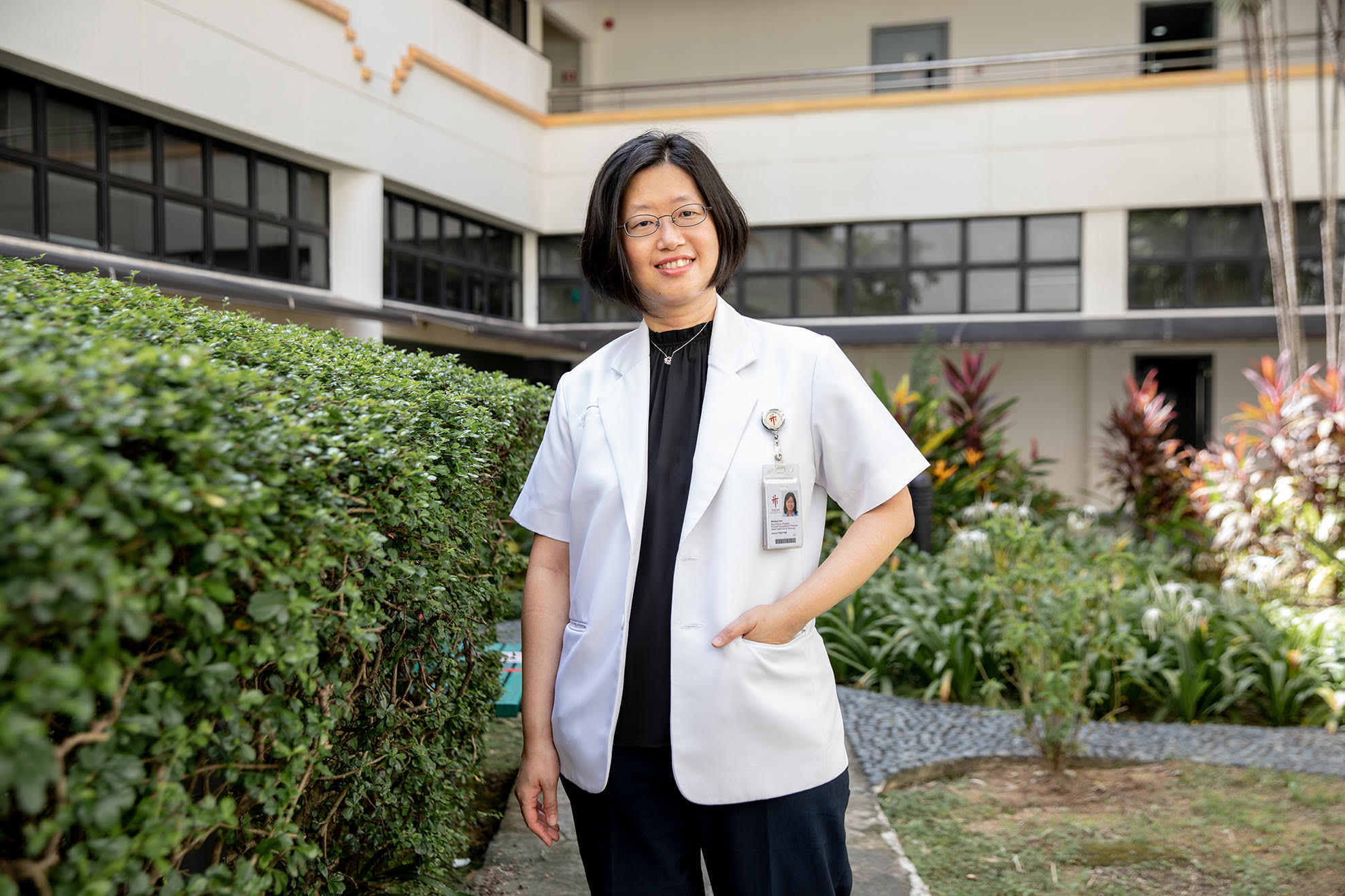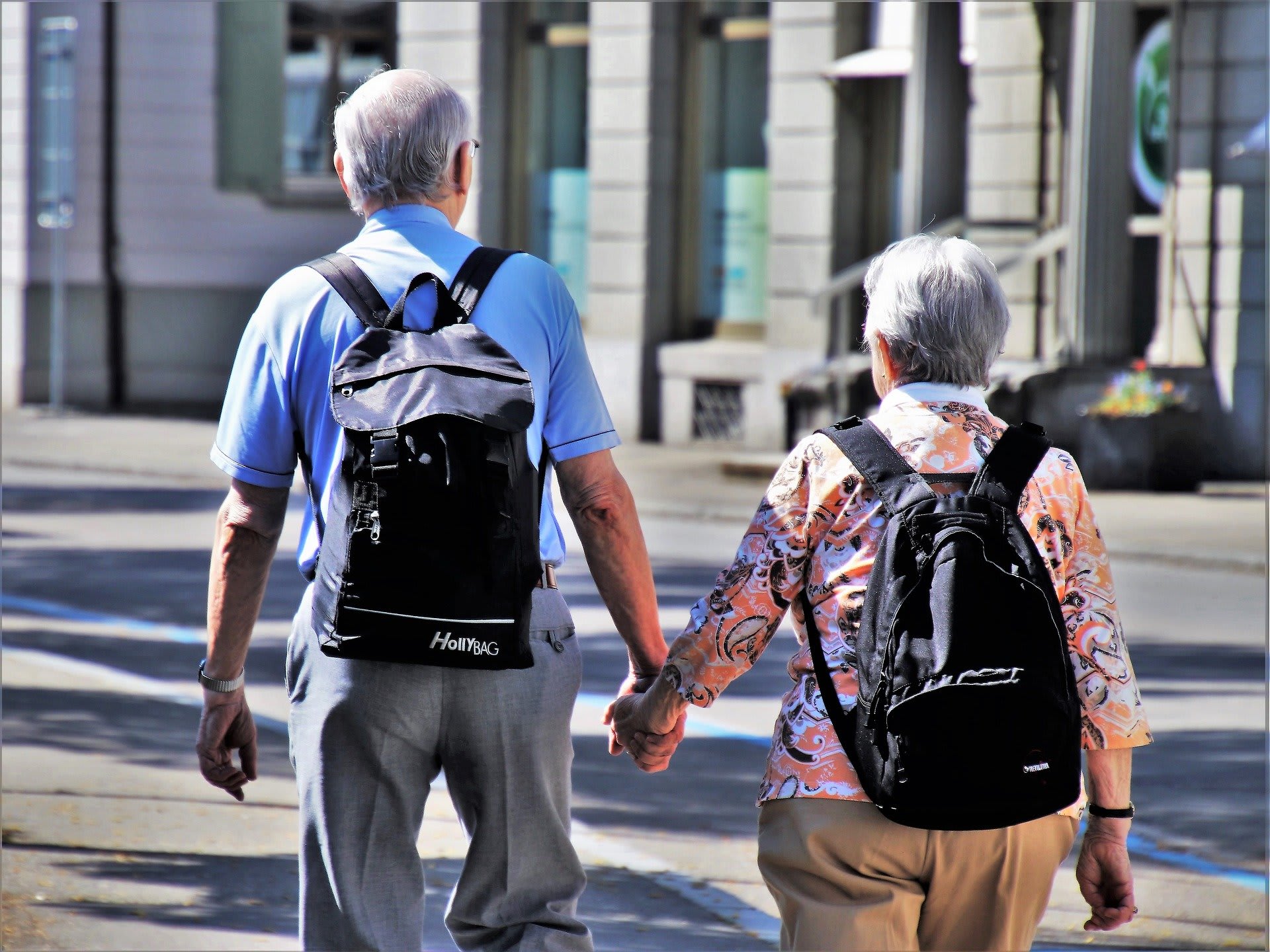After a stroke or injury, it’s not an end to sex and intimacy with your spouse
SINGAPORE — Many people think that it is no longer possible to have a fulfilling sex live or experience intimacy after a debilitating injury or illness, but this is not true.

- An occupational therapist specialising in sexual health gives insights into the needs of patients
- It is a misconception that one cannot enjoy a fulfilling sex life and intimacy after a debilitating injury or illness, she said
- Poor understanding of sexuality, lack of trust and communication are common barriers to sexual and intimacy issues among couples
- She gave tips on how to foster closeness and intimacy
- She also urged healthcare professionals not to close the door on patients who raise sexual health concerns
SINGAPORE — Many people think that it is no longer possible to have a fulfilling sex live or experience intimacy after a debilitating injury or illness, but this is not true.
Ms Shirlene Toh, a principal occupational therapist with Tan Tock Seng Hospital (TTSH), hopes to break taboos and dispel misconceptions surrounding this topic with regards to people with disabilities.
TODAY understands that Ms Toh, 45, is the only occupational therapist in Singapore for now who is formally trained in sexual health and sexual dysfunction.
She runs a sexual wellness service at TTSH that provides sexuality education and counselling sessions to an average of 15 to 20 couples every month. They are couples where one party has a disability, or they are able-bodied couples with sexual dysfunction or intimacy issue.
“Most of the time, individuals with disabilities are portrayed as asexual (someone who does not experience sexual attraction towards people of any gender). Or that it’s not normal for people with illness to seek a relationship.
“All of these myths lead to them being stigmatised by the general public, media, friends and families,” Ms Toh said.
“But individuals with disabilities are just like anyone of us, with their own sexual desire, needs and preference. They also want to love and be loved, and to be in a relationship.”
Besides raising public awareness, Ms Toh believes that healthcare professionals play a role as well in addressing sexuality concerns in patients.
That is why she also conducts training workshops on sexual counselling and education for nurses, general practitioners, occupational therapists and physiotherapists.
“Sometimes, healthcare professionals are also fearful or may not be consistent in asking patients about sexual health concerns after an injury. To them, it’s like opening a can of worms. They may not have the information that the patient needs or they may not have the time,” she added.

Ms Toh said that her interest in attending to the sexual health needs of this group of patients started around 2004.
This was after an encounter with a patient with a physical disability who had expressed her fears of sharing a bed with her husband.
A junior occupational therapist then, Ms Toh was stumped when the patient, who was in her early 30s, posed a question on sexual intimacy.
“The patient said, ‘You realise that I’ll be sleeping with my husband on the same bed when I go home (from the hospital)? What should I do?’.
“She said that no one has taught her how to fulfil the role of a wife since her injury and she didn’t know who to ask. She was afraid of going home with lots of uncertainties.”
That encounter left a deep impression on Ms Toh, whose work now involves helping patients who are on rehabilitation and recovery to get back on their feet and to daily activities of living.
Ms Toh said that there is extensive evidence to show that intimacy and sexuality are important to one’s intimate relationships, and they can affect quality of life and well-being.
However, sexual health concerns are often left unaddressed when one is undergoing rehabilitation, where the focus tends to be on goals such as physical mobility and helping patients cope psychologically.
To better equip herself with the skills needed to address patients’ sexual health concerns, Ms Toh pursued a master’s degree in health science (sexual health) at the University of Sydney, Australia in 2005.
INTIMACY NOT ALWAYS ABOUT SEX
Ms Toh sees patients who have various forms of disabilities after they have a stroke or been diagnosed with Parkinson’s disease, acquired brain injury, spinal cord injury, limb amputation and cancer, for example.
Some are in-patients from TTSH who are referred to her during their hospital stay, for example, after a stroke or injury. After discharge, the patients and their spouse follow up with couple therapy that is part of the sexual wellness service.
She also sees patients from the urology clinic at TTSH. These are usually the able-bodied patients who may have sexual dysfunction problems.
Much of her work involves patient education, dispelling misconceptions and providing facts.
“Around 80 per cent of patient concerns can be addressed through pure education,” she said.
However, what sets her therapy sessions apart from mere information taken off Google is that she applies the information to the situation based on the patients’ medical conditions, so that the patients and their partner can still enjoy intimacy.
“For instance, patients with stroke may read a lot about what happens to them post-stroke. They get a lot of generic information on what could happen, such as loss of libido and arousal issues, but not all patients experience them depending on their condition,” she explained.
“An example would be impaired sensation post-stroke. In such cases, the partner may be recommended to touch the side of the body not affected by the stroke.”
“While older couples may still have sexual activity, it is more spaced out... What they seek is emotional intimacy, companionship in old age, having that human touch when they are feeling sad or down, knowing that someone is there for them.Ms Shirlene Toh, principal occupational therapist at Tan Tock Seng Hospital”
Another group of patients whom Ms Toh sees are able-bodied couples with sexual dysfunction who want to start a family but are unable to consummate their marriage for various reasons.
This group also includes older patients who face intimacy and communication issues with their partners.
Some go to her and pay private fees for her services. There are also older patients referred by other clinic services at TTSH, for example, from the orthopaedics or geriatric medicine units.
Some of the oldest couples Ms Toh sees are in their 70s, which show that intimacy is important for couples at all phases of their relationships.
“As they move on in the relationship, older couples of 30, 40 years seek intimacy in another form,” she said.
“While older couples may still have sexual activity, it is more spaced out such as once every few months. What they seek is emotional intimacy, companionship in old age, having that human touch when they are feeling sad or down, knowing that someone is there for them.”

Regardless of the patient’s condition, Ms Toh usually asks them to take their partner along for sexuality counselling session.
“It always takes two to ‘tango’ and so, similarly in a relationship, both partners’ opinions and issues need to be heard.”
Although some patients are very forthcoming in seeking help, others may be more subtle in letting on about what they need.
They may ask, “Can I hold hands with my spouse?”, and Ms Toh said that it is important for healthcare professionals to pick up some of these subtle comments by patients about their concerns.
“They are afraid that when they bring up these issues, they will be stigmatised or judged by the healthcare professionals.”
NOT KNOWING WHO TO ASK
Singaporeans are generally internet-savvy, but Ms Toh has observed that there are couples who do not have accurate knowledge on sexuality issues despite access to information.
This highlights the importance of providing appropriate channels for people with sexual health concerns to raise questions.
A case that stood out for her involved a couple who did not know how to use a condom. The wife, who was in her early 30s and had a stroke, was advised against using contraceptive pills for birth control due to her medical condition.
“She was very worried as it was the only birth control method that she knew of. She did not know what a condom is and how to use it,” Ms Toh said.
At one of their therapy sessions, Ms Toh went through the different types of birth control options suitable for the patient’s condition and showed the couple how a condom looked like and how it is used.
“Many couples I see think that foreplay takes place 10 minutes before sexual activity. But it is actually a state of mind of letting yourself be emotionally and psychologically ready for sexual activity.Ms Shirlene Toh, principal occupational therapist at Tan Tock Seng Hospital”
Inexperience and poor understanding of sexuality may also sabotage couples’ attempts to achieve true intimacy, Ms Toh added.
This means being in-sync emotionally, being emotionally close to one’s partner, being able to let one’s guard down and letting their partner know how they feel.
“For example, many couples I see think that foreplay takes place 10 minutes before sexual activity. But it is actually a state of mind of letting yourself be emotionally and psychologically ready for sexual activity,” Ms Toh said.
“Foreplay doesn’t have to start 10 minutes before sex; it could start at the beginning of the day when you and your spouse feel emotionally ready to go into the foreplay mode. For example, by texting each other to show concern and love, to say, ‘Should we have a special night tonight?’”

What does not help is that online and social media content give an inaccurate idea of sexuality, which can negatively affect body image and self-esteem.
“The media paints sexuality as ‘sexy’ and this can give people the wrong idea of what it is. Some of the women I’ve encountered in my work are fearful of exposing their bodies to their partners because they feel they are not ‘sexy’ to their partners.
“This results in a lot of insecurity about their body image, which may lead to fear of engaging in physical intimacy.”
Changes in body image and self-esteem issues are one of the barriers to intimacy after an illness or disability.
“Sometimes, altered physical appearance will result in the patient feeling unattractive,” Ms Toh said.
“I emphasise a lot on personal hygiene because you’d want to talk to someone who smells nice, looks clean. It does affect self-esteem and confidence.”
COMMUNICATION AND TRUST NEEDED
Ms Toh said that many couples also do not realise how important communication is.
“In my conversation with patients, I always ask them if they thank their wife or husband.Ms Shirlene Toh, principal occupational therapist at Tan Tock Seng Hospital”
During the course of her work, she found that the main cause of most sexual dysfunction cases is due to a lack of communication, mutual understanding and trust.
“Once couples cannot share their thoughts and feelings with each other openly and truthfully, they tend to go into an ‘assumption circle’, for example, ‘I think he or she doesn’t love me’, ‘I think I’m not attractive enough’,” she said.
“All of these create negative energy in their relationship, which will indirectly or directly affect intimacy in their relationship.”
Poor communication also leads to a sense of isolation.
Ms Toh said it is very common for couples here to sleep in separate beds or rooms as they grow apart from each other.
“When you don’t communicate your thoughts and feelings, you become isolated from each other. You may feel like you don’t want to see or touch this person anymore. And then when this happens, you start going to separate rooms and living separate lives.”
Building intimacy and closeness in a relationship need not require grand gestures. Simple acts of caring and sharing in daily interaction can help.
It could be sharing a plate of fruits you have cut, holding hands or saying ‘thank you’ to your spouse, Ms Toh suggested.
“In my conversation with patients, I always ask them if they thank their wife or husband.
“For example, if you are hospitalised and your wife visits you, do you say ‘thank you’ when she goes home? Some patients then say, ‘Why should I say that to my wife?’
“But this is a simple gesture to show that you appreciate her efforts for visiting you.
“Or when your wife sits next to you at your hospital bed, do you hold her hands and ask her about her day at work? Being in a hospital doesn’t mean you isolate yourself from your spouse. You can still provide her with some level of support.”
For couples who need help to work out their sexuality and intimacy issues, Ms Toh encouraged them to seek help early.
“Don’t worry about the stigma and don’t give up,” she said.
As for healthcare professionals, the last thing they should do when they encounter patients with disabilities is to ignore the sexuality concerns raised by them.
“At least acknowledge it,” Ms Toh said.
“You can consider incorporating sexual education and counselling as part of patient care management or if you are not comfortable to address their concerns, then make a referral to someone else.
“If you encounter a patient asking about sexuality, remember that it takes tremendous effort from the patient to bring it up to you.
“Don’t close the door to the patient because he or she may not re-open the door again if you do that.”









